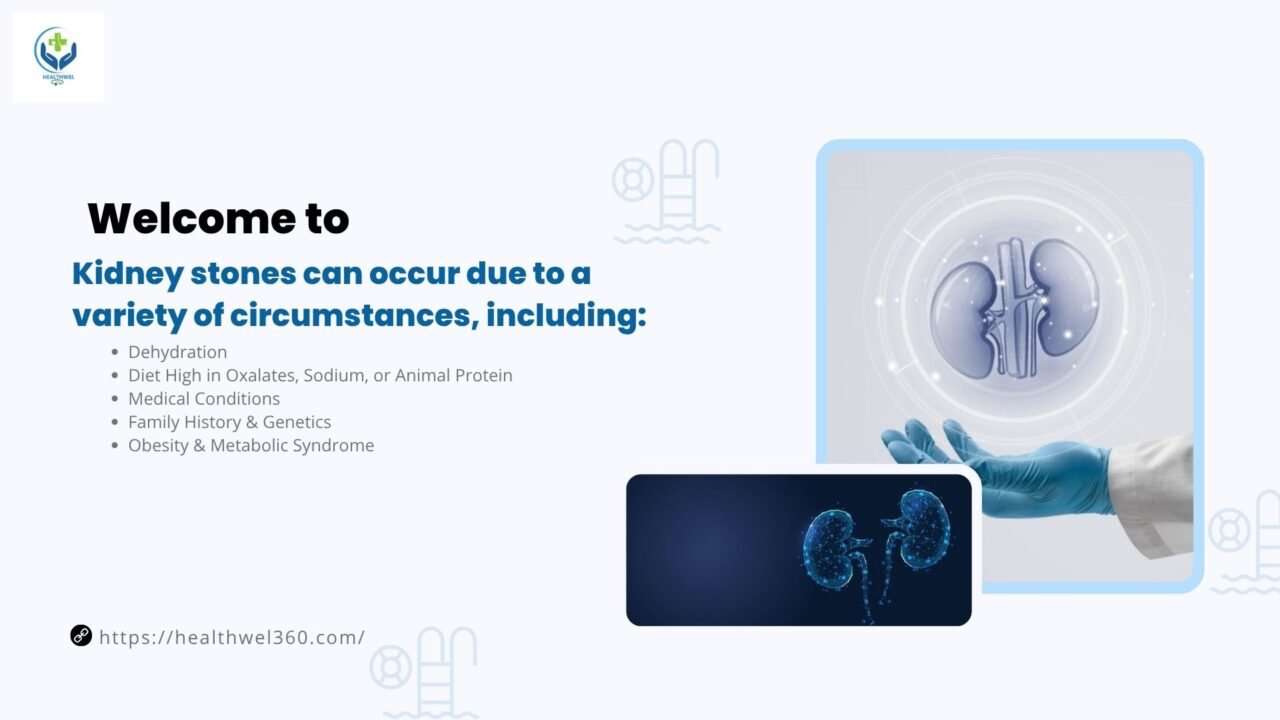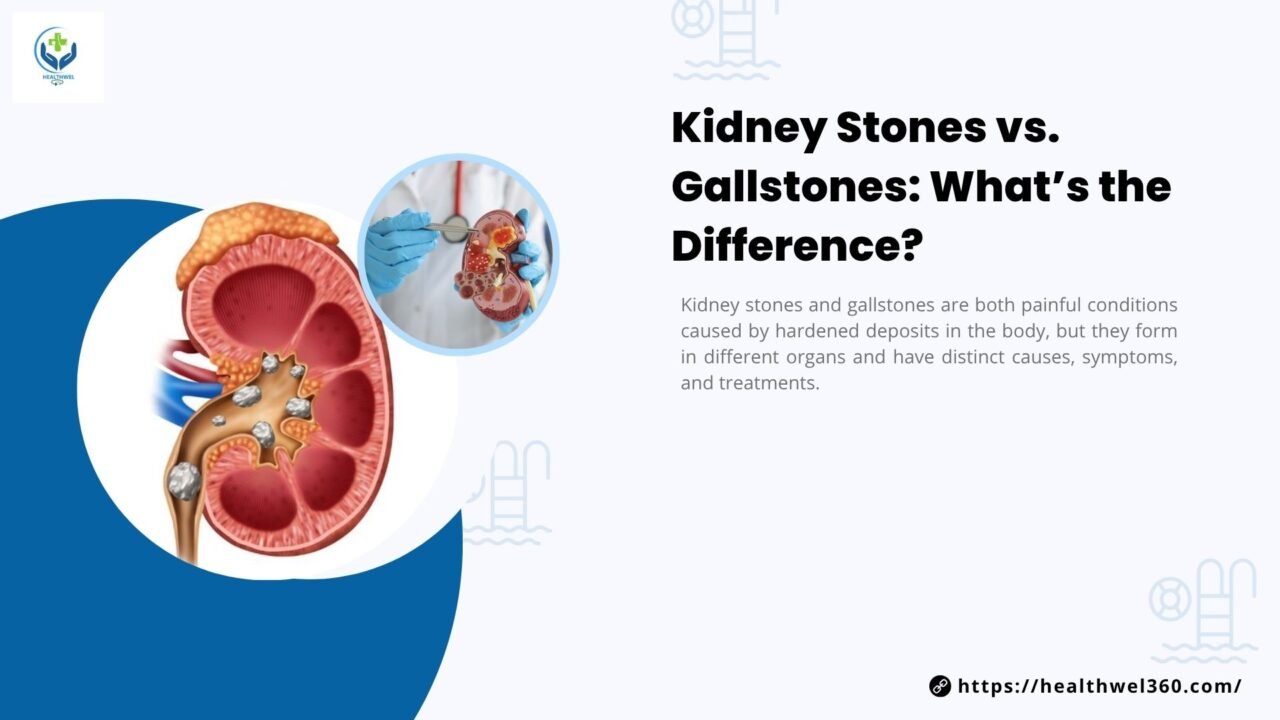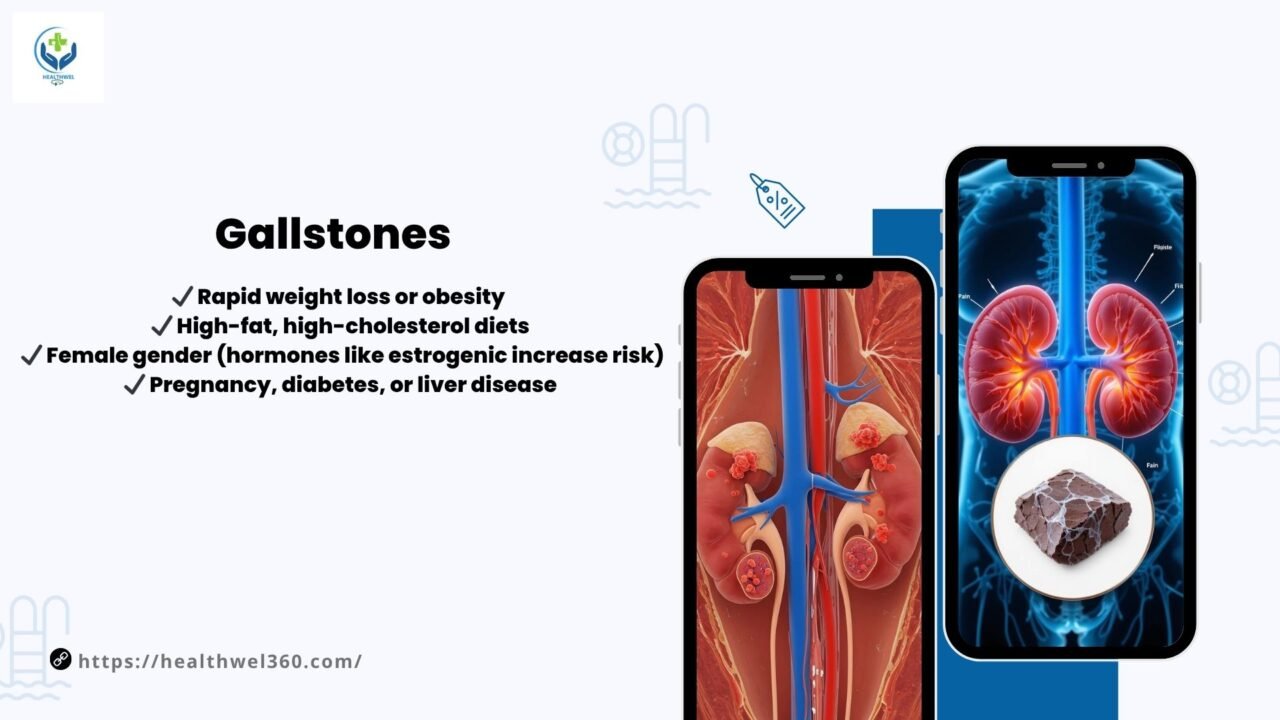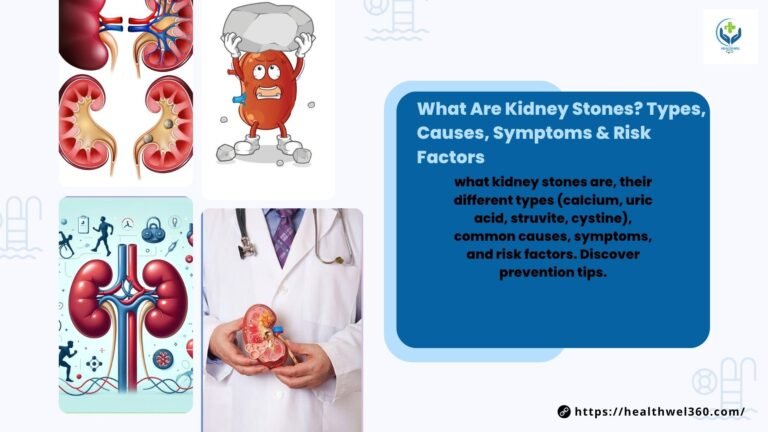What Are Kidney Stones? Types, Causes, Symptoms & Risk Factors, Ranging in size from a grain of sand to a golf ball, they can cause intense pain as they pass through the urinary system. If you’ve ever experienced kidney stones, you know how unbearable the pain can be—but understanding what they are, the different types, and what causes them can help you prevent future episodes.
What Are Kidney Stones?
Kidney stones (also called renal calculi or nephrolithiasis) develop when certain substances in urine—such as calcium, oxalate, and uric acid—become highly concentrated and crystallize. These crystals can stick together and form solid masses, which may stay in the kidney or travel down the urinary tract.
Passing a kidney stone can be excruciatingly painful, especially if it becomes lodged and obstructs urine flow. Natural passage can occur with small stones, but larger stones may require medical intervention.
Types of Kidneys Stones
Not all kidney stones are the same. The four main types are:
1. Calcium Stones (Most Common – 80% of Cases)
Calcium Oxalate Stones: Form when calcium combines with oxalate (found in foods like spinach, nuts, and chocolate).
2. Uric Acid Stones (5-10% of Cases)
Form when urine is too acidic, often due to a high-purine diet (red meat, shellfish) or conditions like gout.
More common in men and people with chronic dehydration.
3. Struvite Stones (10-15% of Cases)
Caused by urinary tract infections (UTIs) that produce ammonia, leading to large, fast-growing stones.
It is more common in women and can cause kidney blockage if left untreated.
4. Cystine Stones (Rare – 1% of Cases)
Result from a genetic disorder called cystinuria, which causes cystine (an amino acid) to leak into urine and form crystals.
Often recur and require long-term management.
What Causes Kidney Stones?
Kidney stones can occur due to a variety of circumstances, including:

1. Dehydration
Not drinking enough water leads to concentrated urine, making it easier for stones to form.
2. Diet High in Oxalates, Sodium, or Animal Protein
Foods like spinach, beets, potato chips, and processed meats can increase stone risk.
3. Medical Conditions
Hyperparathyroidism (overactive parathyroid glands)
Gout (high uric acid levels)
Recurrent UTIs (leading to struvite stones)
Digestive diseases (like Crohn’s or gastric bypass surgery, which affect nutrient absorption)
4. Family History & Genetics
If a close relative has had kidney stones, your risk increases.
5. Obesity & Metabolic Syndrome
Higher body weight and insulin resistance can alter urine composition.
Risk Factors for Kidney Stones
There are specific factors that increase your likelihood of developing kidney stones:
✔ Gender: Men are more prone than women.
✔ Age: Most common between 30-50 years old.
✔ Previous Stones: If you’ve had one, you’re at higher risk for another.
✔ Certain Medications: Diuretics, antacids with calcium, and some antibiotics.
✔ Sedentary Lifestyle: Lack of movement can contribute to stone formation.
Kidney Stones vs. Gallstones: What’s the Difference?

Kidney stones and gallstones are both painful conditions caused by hardened deposits in the body, but they form in different organs and have distinct causes, symptoms, and treatments. Many people confuse the two—so let’s break down the key differences to help you understand which one you might be dealing with (and how to prevent them).
1. Location & Function Kidney Stones
Form in: The kidneys (part of the urinary system).
Function of kidneys: filter waste from blood, produce urine.
Stone movement: Can travel from kidneys → ureters → bladder → urethra.
Gallstones
Function of gallbladder: Stores bile (a digestive fluid released into the intestines).
Stone movement: Can block bile ducts, causing gallbladder attacks.
2. Types & Composition Kidney Stones
The calcium stones are commonly made up of oxalate or phosphate.
Uric acid stones (linked to high-purine diets or gout).
Struvite stones (caused by UTIs).
Cystine stones (rare, genetic).
Gallstones
Cholesterol stones (the most common are yellow-green and caused by elevated cholesterol levels in the bile).
Pigment stones (smaller, darker, from excess bilirubin, often in liver disease).
3. Causes & Risk Factors Kidney Stones
✔ Dehydration
✔ High-sodium, high-oxalate diets (spinach, nuts, processed foods)
✔ Obesity, gout, or digestive diseases
✔ Family history

Gallstones
✔ Rapid weight loss or obesity
✔ High-fat, high-cholesterol diets
✔ Female gender (hormones like estrogenic increase risk)
✔ Pregnancy, diabetes, or liver disease
4. Symptoms: How to Tell Them Apart Symptom: Kidney Stones, Gallstones
Pain Location Flank/back pain radiates to the groin. Upper right abdomen, may spread to shoulder
Pain Type Sharp, cramping, comes in waves Sudden, intense, constant “gallbladder attack”
Digestive Signs Nausea/vomiting (from pain) Bloating, indigestion, especially after fatty meals
Urinary Issues Blood in urine, frequent/burning urination None (unless bile duct blocked, causing jaundice)
Fever/Chills Only if infection (pyelonephritis) Possible with gallbladder infection (cholecystitis
5. Diagnosis & Treatment Kidney Stones
Diagnosis: CT scan, ultrasound, urine tests.
Treatment:
Small stones: Pain meds + hydration to pass naturally.
Large stones: lithotripsy (sound waves), ureteroscopy, or surgery.
Gallstones
Diagnosis: Ultrasound, blood tests (for infection).
Treatment:
Silent stones: No treatment needed.
Symptomatic stones: Gallbladder removal (cholecystectomy).
6. Prevention Tips Kidney Stones
Drink 3+ Liters of water daily.
Reduce sodium/oxalate-rich foods.
Eat citrus (lemonade helps prevent stones!).
Gallstones
Maintain a healthy weight (avoid crash diets).
Choose high-fiber, low-fat foods.
Regular exercise.
Final Thoughts
While both conditions involve “stones,” kidney stones and gallstones affect different systems and require different approaches. If you’re experiencing severe abdominal pain, seek medical help—knowing the difference can lead to faster, more effective treatment.
Have you dealt with kidney stones or gallstones? Share your experience in the comments!




